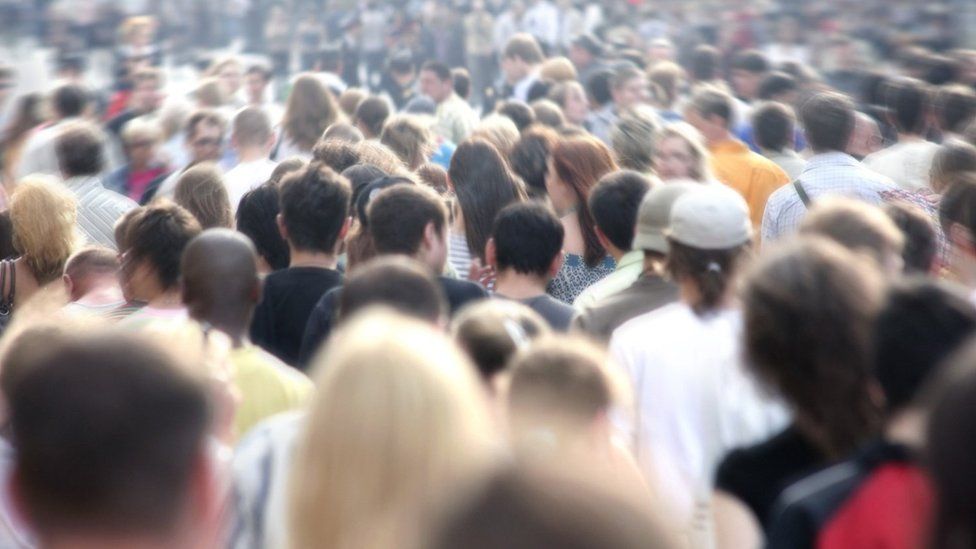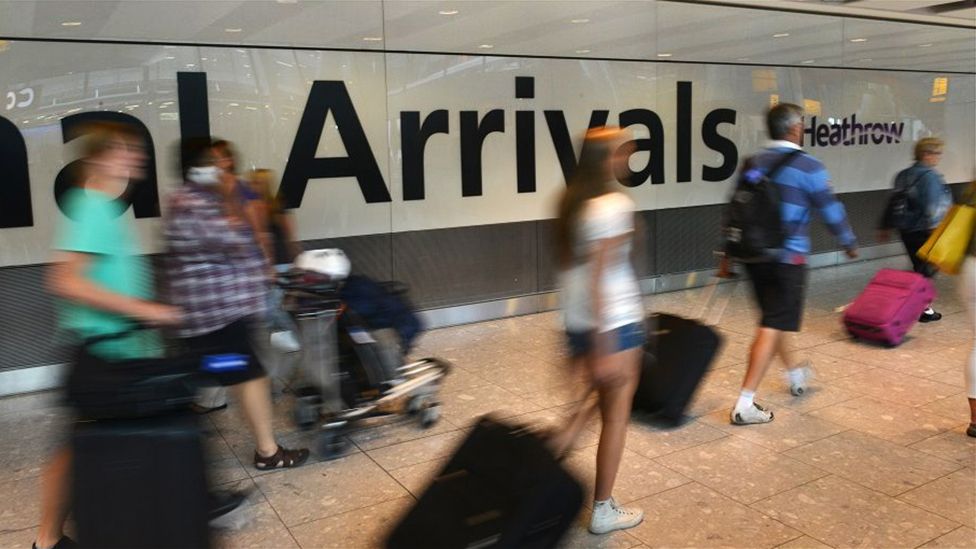
Fewer than half of people in England and Wales have described themselves as Christian for the first time, the 2021 census has revealed.
The proportion of people who said they were Christian was 46.2%, down from 59.3% in the last census in 2011.
Meanwhile the number who said they had no religion increased to 37.2% of the population, up from a quarter.
And people identifying as Muslim rose from 4.9% in 2011 to 6.5% last year
The census results published on Tuesday also report back on people’s national identity and ethnic group as well as religion.
The census is carried out every 10 years by the Office for National Statistics (ONS).
It explores how British society is being shaped from people’s answers to questions about themselves, their household and their home.
The results help organisations make decisions on planning and funding public services including transport, education and healthcare.
The 2021 survey was held on 21 March of that year.
The ONS said the census question broadly asked “what is your religion” – referring to people’s affiliation, rather than their beliefs or active religious practices.
Professor Linda Woodhead, head of Theology and Religious Studies at King’s College London, said ticking “no religion” could still indicate a number of different beliefs.
She told BBC News: “Some will be atheist, a lot will be agnostic – they just say, ‘I don’t really know’ – and some will be spiritual and be doing spiritual things.
“But they don’t want to identify with a particular religion, and certainly not with institutional religion.”
Meanwhile, London is the most religiously diverse region of England, with just over 25.3% of people reporting a religion other than Christianity.
And south-west England is shown to be the least religiously diverse region, with 3.2% selecting a religion other than Christian.
A total of 81.7% of residents in England and Wales identified their ethnic group as white on the day of the 2021 census, down from 86.0% a decade earlier.
The figures also showed differences in nations – in England alone, 37.2% of people said they had no religion, while in Wales this rose from 32.1% in 2011 to 46.5% last year.
Following the announcement, the Archbishop of York said the country had “left behind the era when many people almost automatically identified as Christian”.
The Most Rev Stephen Cottrell said: “It’s not a great surprise that the census shows fewer people in this country identifying as Christian than in the past, but it still throws down a challenge to us not only to trust that God will build his kingdom on Earth but also to play our part in making Christ known.”
Chief executive of Humanists UK Andrew Copson added the figures should be a “wake-up call which prompts fresh reconsiderations of the role of religion in society”.


It may feel like a pivotal moment, with the census showing fewer than half of people in England and Wales identifying as Christian, but for years social surveys have shown a rapid rise in those who define themselves as having no religion, often reporting that as the largest category – that is not the case in the census data.
With its very simple optional question, “What is your religion?”, the census does not illustrate the range of 37.2 million people in the “no religion” category; from those who do not believe in god at all to those who do in some form, or believe in the power of prayer and an afterlife or are spiritual in some way.
The trend away from faith is not something that is reflected in major non-Christian religions which all saw a rise, with more than 1.2 million more people identifying as Muslim in England and Wales in 2021 as compared to 2011. As with ethnicity, patterns of family size and immigration are seen as contributory factors.
Of those who chose to write in their answer under the “any other religion” option, the largest group identified as Pagan, with a tenfold rise from 2011 in those identifying themselves as Shaman.

The 2021 survey, carried out on March 21 last year, was filled out by more than 24 million households across England and Wales.
More data from the census is set to be published in stages over the next two years.
The data released on Tuesday covers ethnicity, religion, national identity and language.



